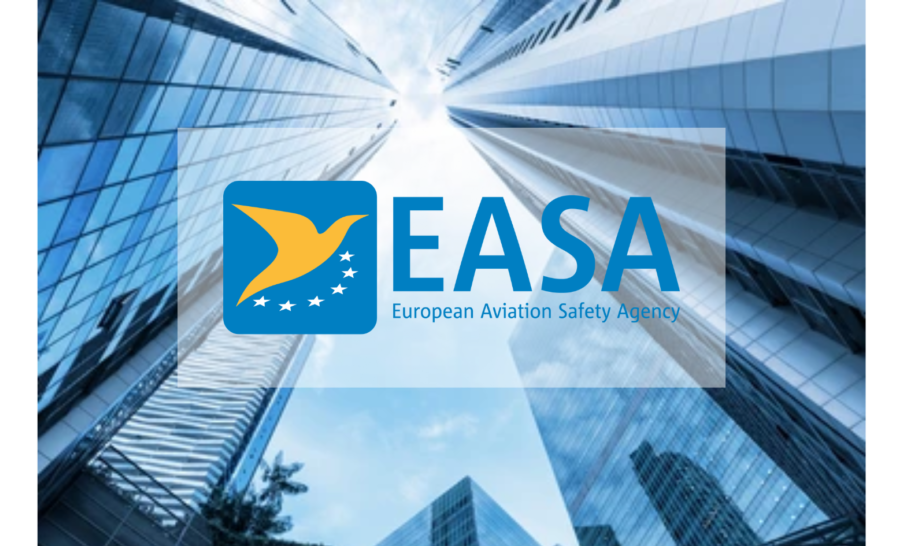The correct determination of the legal requirements for determining Principal Place of Business (PPoB) is fundamental for Competent Authorities to be able to oversee organisations effectively, to ensure the required level of safety and to ensure organisations do not misuse the system.
While EU Regulations contain a definition of the PPoB, the EU regulations set out a number of important criteria for establishing an organisation’s PPoB to make its definition clear and to have a standardised approach in its interpretation. While the criteria may not be satisfied at the same location, it should be possible to establish a “centre of gravity” for the organisation’s operations.
Regarding organisations in the domains of continuing airworthiness, production, air operations and Aircrew, the competent authority shall be the authority designated by the Member State in which the organisation has its Principal Place of Business (PPoB).
The PPoB determines who shall be the competent authority in the best position in the EU, to ensure that the competent authority has the closest links to the organisation and that it has regulatory “control” over the organisation for safety related certifications to maintain a high uniform level of civil aviation safety.
A competent authority has the power, among others to:
empower its inspecting staff to:
- examine records, data, and any material relevant to the execution of certification and/or oversight tasks;
- enter relevant premises, operating sites, or means of transport;
- perform audits, investigations, assessments, inspections, including ramp inspections and unannounced inspections;
- take or initiate enforcement measures as appropriate, including through national judiciary actions.
cooperate appropriately with other national non-aviation authorities, such as labour inspectorates, police and judicial institutions etc
The PPoB of an organisation is the decisive link for determining which authority is responsible. The PPoB determines if the competent authority for certification, oversight and enforcement for a given organisation should be the national competent authority of the Member State where such PPoB is located or the Agency, when the PPoB is located outside the EU.
In aviation safety rules, the PPoB is defined as follows:
‘Principal place of business of an organisation means the head office or registered office of the organisation within which the principal financial functions and operational control of the activities referred to in this mRegulation are exercised’’.
In Regulation (EC) 1008/2008, it is also defined as:
“‘Principal place of business’ means the head office or registered office of a Community air carrier in the Member State within which the principal financial functions and operational control, including continued airworthiness management, of the Community air carrier are exercised”.
Therefore, there can only be one PPoB, where the operational control and financial functions are exercised and where the accountability for safety compliance can be traced back to and monitored effectively.
A concrete assessment needs to be made, based on the verification of two cumulative criteria, to be applied in conjunction:
- the head office or registered office of the organisation must be located in the Member State; and
- the principal financial functions and the principal operational control of its operational activities must be held within that head office or registered office located in that Member State.
The PPoB shall be the place where the below elements are found:
- The organisation has registered its organisation with the local company or tax register and where it pays corporate tax.
- The organisation performs its main administrative and financial functions, such as payment of salaries employment benefits, invoicing, etc.
- The organisation’s accountable manager is ultimately responsible for safety. He/she is responsible for ensuring that all activities can be financed and carried out in accordance with the applicable requirements, and that the organisation is adequately structured and staffed with suitably qualified staff. As the ultimate responsible for safety and compliance vis à vis the competent Authority, he/she should either reside permanently in the Country where the PPoB is or demonstrate to the satisfaction of the Authority that there are suitable means in place to discharge his/her responsibilities in full while not residing at the PPoB.
- The organisation's key personnel (Head of Training, Chief Flight Instructor, Safety Manager, Compliance Monitoring Manager, FSTD Manager, etc.) controls, and coordinates daily operational activities, including holding operational management meetings and processing of operational correspondence, that ultimately lead to meeting the safety objectives of the EU aviation safety acquis.
- The head office or registered office are the effective and actual centre of operations from where direction, control, planning, coordination, and corporate finance activities, and in particular in the case of Regulation (EC) 1008/2008 airworthiness management, are managed on a daily or regular basis. With the obvious exception of situations, such as the Covid-19 pandemic, that necessitate widespread telework, it shall in any case not be an office where the organisation holds sporadic meetings that are attended by the accountable manager and the key personnel who have travelled there just for the occasion, nor an office where only a few meetings are held per year.
- The records regarding the operational and financial decisions affecting the direction, control, planning, coordination and corporate finance of the organisation’s activities and operations, within the scope of the applicable regulations, are always tangible and potentially subject to physical inspection and/or assessment by the competent authority.
In regard to safety oversight responsibilities, competent authorities need to be able to take effective, proportionate and dissuasive enforcement actions on any organisation they approve, and to ensure that its accountable manager can be held accountable in his/her role as ultimate responsible for safety.
The determination of the PPoB is not to be misconstrued to circumvent the correct application of EU law when it comes to certification, oversight, and enforcement of the organisation and its key personnel by the relevant competent authority.
For more information about the above and other aviation related matters, you can contact our office on info@vaialegal.com





